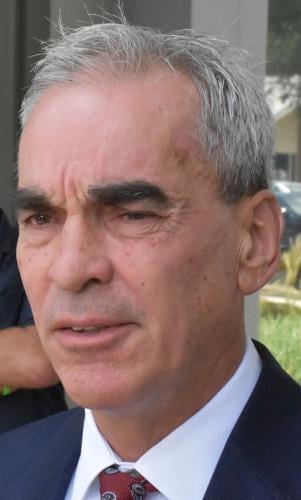In the intricate tapestry of legal proceedings and judicial decisions, certain cases stand out due to their complexity and the profound implications they carry for the future of justice. The case of Thomas Sanders is one such instance, where past presidential decisions and current judicial actions intersect in a manner that could redefine how capital punishment is viewed and applied in the United States. As we delve into the latest developments surrounding Sanders' case, it becomes evident that this trial transcends individual justice, touching upon broader societal debates about the efficacy and morality of the death penalty.
Thomas Sanders' journey through the American justice system has been anything but straightforward. Originally sentenced to death for his heinous crimes, his sentence was commuted by former President Biden, sparking intense debate about the appropriateness of executive clemency in capital cases. Now, as Sanders faces the possibility of the death penalty once again, questions arise not only about his fate but also about the role of political influence in judicial processes. This article explores the latest developments in Sanders' case, examining what these events might mean for the future of capital punishment in America.
Grand Jury Indicts Sanders: A New Chapter Begins
On Monday, a pivotal moment occurred when a grand jury in Catahoula Parish issued a first-degree murder indictment against Thomas Sanders. This indictment marks a significant step forward in the judicial process, setting the stage for a trial that will determine whether Sanders will face the ultimate punishment for his crimes. The decision by Louisiana prosecutors to pursue the death penalty underscores the gravity of the offenses committed, reigniting discussions about the necessity and fairness of capital punishment.
The brutal nature of the murders involving a Las Vegas woman and her 12-year-old daughter in 2010 forms the backdrop of this legal drama. Prosecutors argue that the severity of the crimes justifies seeking the death penalty, emphasizing the need for justice and closure for the victims' families. This stance reflects a broader trend where state authorities reassess previous executive decisions, particularly those made during the final days of an administration.
Beyond the specifics of the case, this development highlights the ongoing tension between federal and state jurisdictions in matters of life and death. It raises important questions about the balance of power and the limits of executive authority in commuting sentences, especially in high-profile cases like Sanders'. As the legal proceedings unfold, they will undoubtedly shape future approaches to capital punishment across the country.
Commuting Sentences: Revisiting Past Decisions
Sanders' case brings attention to the controversial practice of commuting death sentences, a decision that former President Biden executed for 37 death row inmates shortly before leaving office. These commutations were part of a larger initiative aimed at reforming the criminal justice system, focusing on reducing the number of individuals on death row. However, the effectiveness and ethical considerations of such actions remain hotly debated topics within legal circles.
By commuting Sanders' sentence to life imprisonment, Biden sought to address concerns about the fairness and consistency of the death penalty application. Critics argue that commuting sentences undermines the rule of law, allowing political considerations to override judicial outcomes. Proponents, however, view it as a necessary step towards achieving a more equitable and humane justice system, free from the biases and errors inherent in capital punishment.
This renewed focus on Sanders' case serves as a reminder of the complexities involved in balancing justice with mercy. As states like Louisiana reconsider these commutations, they must weigh the original rationale behind them against the public's demand for accountability and safety. This reevaluation process challenges policymakers to consider long-term strategies for addressing systemic issues within the justice system.
Seeking Justice: Implications for Future Cases
The decision to seek the death penalty against Thomas Sanders after his sentence was commuted by Biden carries significant implications for similar cases nationwide. It signals a shift in how states approach previously commuted sentences, potentially leading to a wave of retrials and resentencing hearings. This movement could set a precedent for other jurisdictions grappling with similar situations, influencing how they handle cases where executive clemency has been granted.
Moreover, the pursuit of the death penalty in Sanders' case reflects a broader societal conversation about crime and punishment. While some advocate for abolishing the death penalty altogether, others believe it remains a necessary tool for deterring heinous acts and providing justice for victims' families. This duality complicates efforts to create a unified national policy regarding capital punishment, underscoring the need for comprehensive dialogue and consensus-building among stakeholders.
As Sanders' case progresses, it offers an opportunity to reassess the principles guiding our justice system. By examining the interplay between executive authority, prosecutorial discretion, and public opinion, we can work towards a more transparent and consistent framework for administering justice. Ultimately, the outcome of this case will serve as a benchmark for evaluating the effectiveness and fairness of our legal processes, ensuring that justice is both done and seen to be done.

